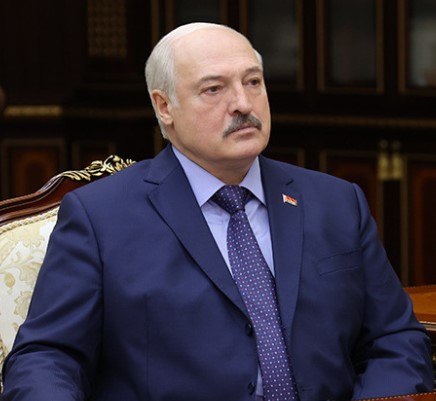The Rosselkhoznadzor Office held public discussions on the results of law enforcement practice for the 3rd quarter

The event took place on November 17, 2023 with the participation of representatives of government authorities , large business entities and interested parties.
Opening the public hearings, the HEAD of the Department, Oleg Podkorytov, emphasized the importance of a responsible approach to work in the agricultural sector. Nowadays there is a difficult situation regarding animal and plant diseases; it is very important to prevent them from entering our region. The Omsk region must further, with the help of ROSSELKHOZNADZOR , increase its EXPORT potential.
Legislation in the agricultural sector is changing very quickly, territorial administration is trying to quickly, in all possible ways, convey these changes to economic entities.
Deputy Head of the Department Olga Matyka introduced those present in more detail to the current requirements in the field of veterinary medicine. Olga Georgievna highlighted in detail the tense epizootic situation in the Russian Federation and noted that the veterinary inspection service pays great attention to the prevention of violations of mandatory requirements. Thus, specialists conducted 441 preventive visits, including preventive conversations and counseling of controlled persons.
To date, the Register of Exporters includes 426 Omsk enterprises involved in the circulation of regulated goods of animal origin and feed, including enterprises exporting plant products (grain) to CHINA for food purposes, and the Register of Enterprises of the Customs Union includes 197 enterprises. To obtain the right to export, Rosselkhoznadzor specialists certified enterprises for compliance with the safety and quality requirements of their products and all production processes. This work is becoming increasingly intensive: in 2023, there is an increase in exports of MEAT and meat products by 46% (more than 4,700 tons shipped), dairy products by 25% (about 6,000 tons shipped), feed and feed additives for animals by 55% (over 9000 tons shipped).
The head of the department of plant quarantine, quality and safety of grain and seed supervision, Larisa Chernysheva, in her report also analyzed changes in legislation and the main violations committed by business entities. There are also many innovations in this area: on September 1, 2023, the new law “On Seed Production” came into force. The law regulates relations in the field of production, storage, transportation, sale of agricultural seeds, their use, including the provision of services in this area, as well as the import and export of seeds.
As for exports, the procedure for obtaining phytosanitary certificates has been simplified and accelerated for business entities. The main condition is product traceability and its official registration in information systems.
According to the head of the department of state land supervision and control in the field of safe handling of pesticides and agrochemicals, Evgeniy Goman, the largest number of established violations of the mandatory requirements of land legislation are associated with overgrowing and non-use of land for agricultural production. Based on the results of the 3rd quarter of 2023, Department specialists monitored about 37 thousand hectares of agricultural land. It is noted that unused, overgrown, littered agricultural land plots are potential sources of fires. Uncontrolled disposal of the municipal land fund leads to an increase in the area of agricultural land, the legal regime for use of which does not meet the requirements of the law.
Much work is being done to regulate the market of pesticides and agrochemicals. Since July 2021, the Department, together with the Ministry of Agriculture of the Omsk Region, has been registering business entities in the Unified Register of supervised objects of the FSIS "Cerberus", work in this direction continues today. The Department received 1,477 applications from business entities for registration, and included 42,281 supervised facilities where pesticides and agrochemicals are used, which is about 75% of the total number of agricultural organizations subject to registration.
In order to eliminate the risks of poisoning and death of honey bees when processing agricultural crops, the Department sent proposals to the working group under the Ministry of Agriculture of the Omsk Region, distributing methodological recommendations on the prevention of poisoning and death of bees, as well as on compliance with regulations for the use of pesticides and agrochemicals in the production of agricultural products.
Beekeepers are advised not to ignore the requirements of environmental regulations related to limiting the flight of bees, removing bee colonies from the processing area for the required period of time, placing hives (apiaries) on land plots in accordance with the legislation of the Russian Federation, informing the heads of agricultural organizations, local governments, and state veterinary services about the locations of bee apiaries .
DIRECTOR of the Siberian branch of the Federal State Budgetary Institution “Center for Grain Quality Assessment” Igor Denisov also took part in public discussions and spoke about the range of research conducted by the institution, which, after restructuring, covers not only the field of grain, but also veterinary medicine, agrochemistry, and many other areas.
In conclusion, the head of the Rosselkhoznadzor Office emphasized the importance and significance of the hearings and wished Omsk farmers all the best on the eve of their professional holiday - Agricultural Worker's Day in the Omsk Region.
During the event, Service specialists provided explanations on topics of interest to participants: a large number of questions related to accreditation in the Registers of Exporters, licensing of pharmaceutical activities in the field of veterinary medicine, checking the quality and safety of grain and compartmentalization.
All materials of public discussions, as well as the results of the survey, are posted on the website of the Rosselkhoznadzor Office for the Omsk Region.
Source: press service of the Rosselkhoznadzor Office for the Omsk Region
Read together with it:
- С января по июль экспорт свинины из ЕС вырос на 1,6%На втором месте оказались Нидерланды с объёмом экспорта в 392 000 тонн. Дания экспортировала свинину в третьи страны с объёмом в 308 000 тонн, что примерно на 13% меньше, чем в предыдущем году. Германия экспортировала 180 000 тонн, что на 18% меньше, чем годом ранее. Это было обусловлено, главным образом, дополнительными ограничениями на экспорт, вызванными вспышкой ящура в начале года. Помимо зап...
- США ввели санкции против президента КолумбииПрезидент Колумбии, его жена и старший сын, а также глава колумбийского МВД попали под санкции США из-за трафика наркотиков из Колумбии в Штаты. Бессент обвинил Петро в отказе пресечь деятельность наркокартелей Густаво Петро Минфин США ввел санкции против президента Колумбии Густаво Петро, сообщается на сайте ведомства. «Президент Петро позволил наркокартелям процветать и отказался пресечь их деят...
- Чего ожидать от «одной из самых рискованных» поездок ТрампаДональд Трамп начал турне по Азии, в ходе которого встретится с лидерами ключевых стран, включая Си Цзиньпина. Почему эта поездка может оказаться сложнее, чем недавние визиты в Европу и на Ближний Восток — в статье РБК Дональд Трамп Какие встречи запланированы в ходе турне Президент США Дональд Трамп вылетел из Вашингтона поздним вечером в пятницу, 24 октября, и утром в субботу его борт приземлитс...
- С начала года Московская область увеличила экспорт свинины на 35% в стоимостном выраженииМосковская область продолжает укреплять позиции одного из ведущих экспортеров продукции агропромышленного комплекса в России. По итогам 9 месяцев с начала года регион нарастил экспорт свинины на 35% по стоимости. В натуральном выражении объем поставок составил 85 тысяч тонн, что на 17% больше, чем за аналогичный период прошлого года. В Министерстве сельского хозяйства и продовольствия Московской о...
- Modernization of poultry farming in the Nizhny Novgorod region: new opportunities and production growthThe project, implemented under the regional preferential lending program, allowed the Russkoye Pole agricultural holding to invest 440 million rubles. Regional Agriculture Minister Nikolai Denisov reported that the organized sector produced 88,400 tons of poultry MEAT in 2024 , with an expected increase to 93,8......
- Rostov wholesaler Everest is merging with a loss-making meat supplier from Donetsk.Donskie Traditsii, a wholesale MEAT supplier operating in Donetsk since 2017, saw its revenue decline by 28% in 2024 , to 273.1 million rubles, while losses narrowed from 14.4 million rubles in 2023 to 5.3 million rubles. In contrast, Everest increased its revenue by 16% to 3.6 billion rubles in 2024, although net profit declined by 24%, to 11.9 million rubles. Creditors of Donskie Traditsii can f...
- Proper insemination of cows: how genetic and physiological factors influence herd productivityGenetics plays a significant role in determining the reproductive fitness of bulls, and daughter pregnancy rates should be compared to accepted standards. If a farm's performance falls short of the baseline, using less-than-optimal bulls can still improve fertility. Cow physiology is also crucial for successful insemination. Feed quality, housing conditions, and veterinary care directly impact res...





























































